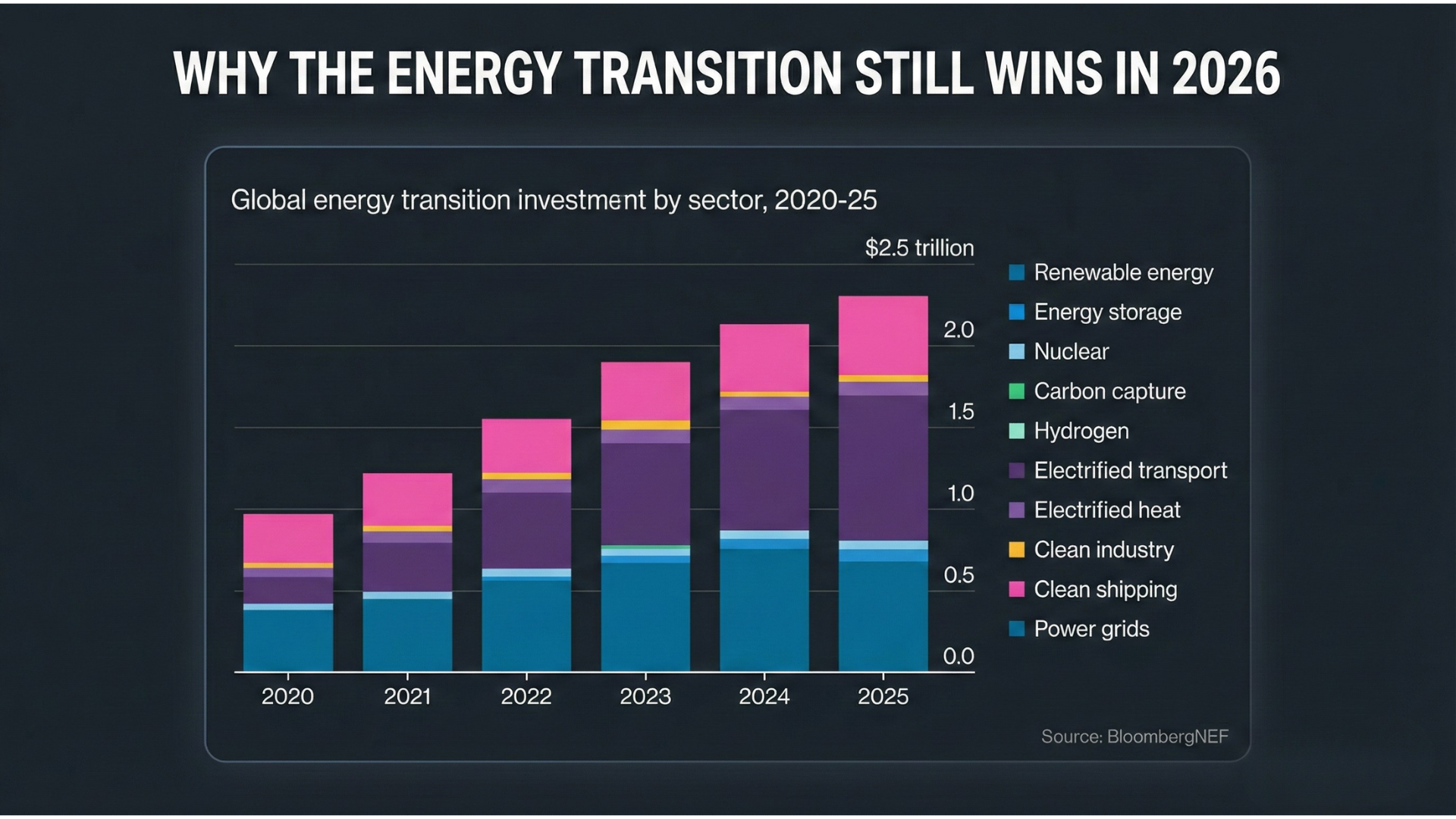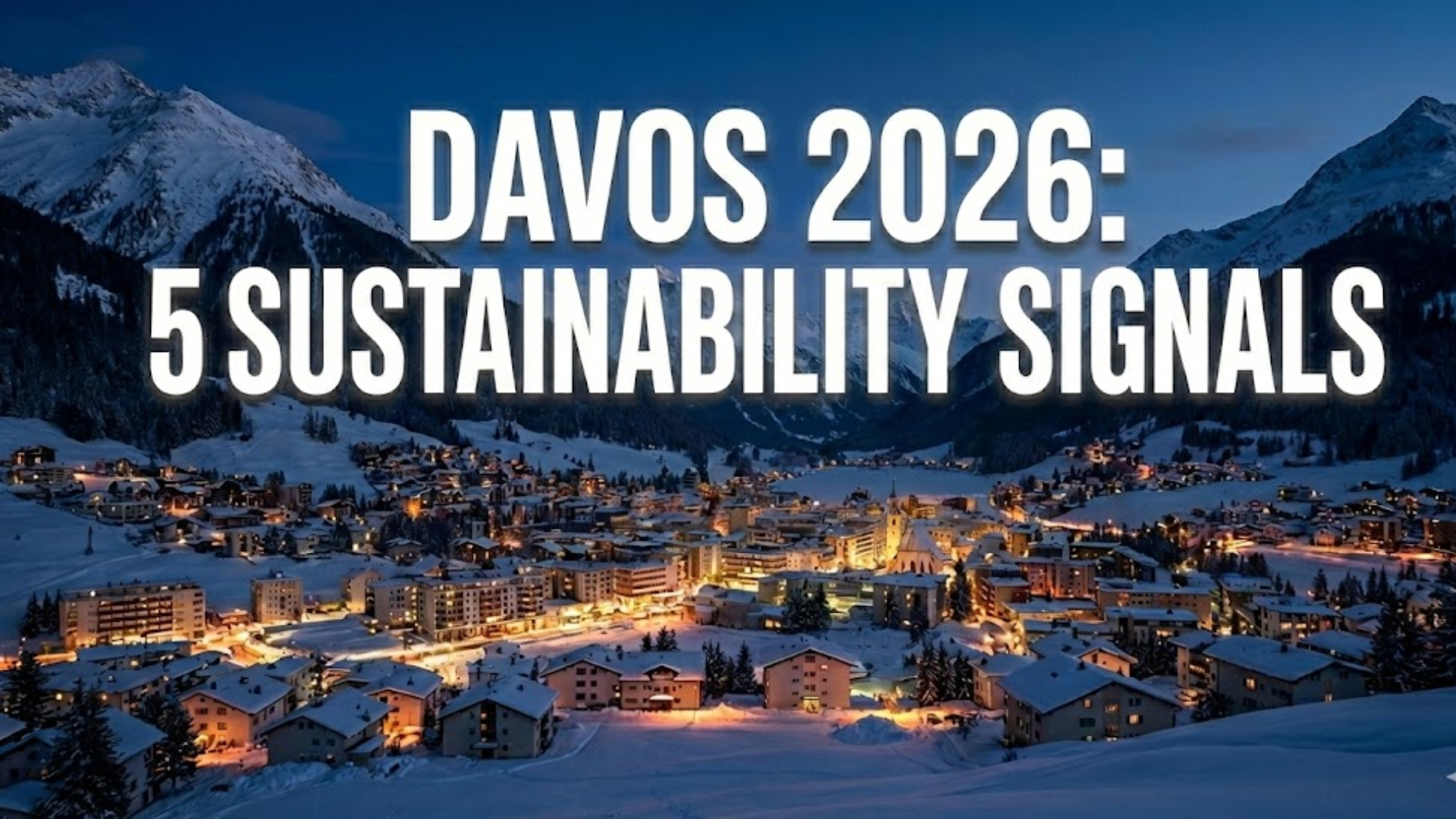

New York Climate Week cuts through the noise
Europe’s deforestation rule delayed, Omnibus debate heats up
Europe fails to set a climate target after agreeing to buy US fossil fuels
New leaders take over in California (CARB) and Europe (EFRAG)
Most companies avoid “Scope 3” emissions management - missing opportunities
This year’s New York Climate Week was a microcosm of the trends shaping sustainability and climate action over the past year. At events across New York City this week, sustainability professionals gathered en masse to continue their work to mitigate the climate crisis, while just down the block President Trump, speaking at the United Nations General Assembly, called climate action “the greatest con job ever perpetrated on the world,” adding that renewables “are a joke; they don’t work.”
On the face of it, it may seem companies are buckling under the political pressure. However, as a series of surveys has shown throughout the year, companies in the real economy are continuing or even doubling down on climate action.
As I said at the Wall Street Journal event this week, the difference is a move from “aspiration to perspiration” - companies are doing more and saying less. This trend was reaffirmed again this week in research posted in the Harvard Business Review, which found that 32% of companies are accelerating climate commitments while only 13% of companies are retreating.

Photo Credit: Dow Jones and Company
In addition to President Trump’s remarks calling climate change a “hoax” – the US skipped the Global Climate Summit, where more than 120 nations shared their Nationally Determined Contributions (NDC) – the climate action pledges required under the Paris Agreement. China announced its first NDC, committing to a significant reduction in emissions of at least 7 to 10 percent by 2035 compared to its peak, which could occur as soon as this year. They also committed to increasing their wind and solar energy six-fold to increase non-fossil energy 30% of their energy mix by 2035.
California Governor Gavin Newsom called Trump’s speech an “abomination,” and signed a bilateral climate agreement with Brazil, as he positions California to help fill the void in US leadership.
Climate practitioners use the word resilience to describe the actions we take to live with a changing climate. What this year’s New York Climate Week demonstrated for me is the resilience of the people involved in this movement. I participated in numerous events and networking sessions during the week. The mood was consistently upbeat and focused on the work at hand. I can best describe it as resolute.
The political “noise” was acknowledged at each event, but is having little effect on the actual work. My summary of this week is that climate action is not slowing down.
👉 Prefer to get Sustainability Simplified straight into your inbox instead of LinkedIn? Sign up for our email list here.
2. Deforestation Rule Delayed, Omnibus Rolls On

The European Union Deforestation Rule (EUDR) had already been delayed for a year back in 2024. Now, Europe is proposing pushing it out another year, citing supply chain complexities and issues with the “IT system.” The proposal is likely to pass as the mood in Europe continues to be focused on cutting “red tape.”
Critics argue that an additional year's delay undermines the preparation and investment companies have already made, with compliance set to begin in just three months. Anke Schulmeister-Oldenhove of the WWF said, “It is probably no coincidence that this move comes right as the Commission pursues an unprecedented deregulation agenda.” The rule, which would require companies importing certain products to conduct due diligence to ensure they were not produced on deforested land, will now likely be pushed back to December 31st, 2026.
Europe continued to push ahead with its “simplification Omnibus” with a plenary vote anticipated by October 20th. Discussions have been described as “tense” with the main sticking point being the number of companies in scope. Pressure from the US and lobbying from the right and left have further complicated negotiations.
3. Europe Fails on Climate Target Ahead of COP30

Another indication of Europe’s deepening divide came this week as the bloc failed to reach a binding agreement on its 2035 climate goals. Instead, EU environment ministers signed a “statement of intent,” which indicated that their target would fall between 66.25% and 72.5% emissions reduction by 2035, based on 2019 levels.
Shirley Matheson, of the WWF, said: “This statement of intent is Olympic-level diplomatic gymnastics, a performance designed to avoid the embarrassment of arriving at COP empty-handed. This was a missed opportunity for the EU to raise the bar and inspire others to follow.”
One of the challenges leading to this impasse is the commitment to buy $750 billion in American fossil fuels by the end of Trump’s term in office. Analysts claim this would make it impossible to reach Europe's current goals.
4. New Leaders for California and Europe

The California Air Resources Board (CARB) appointed a new chair this week: Lauren Sanchez (no, not the one married to Jeff Bezos!). Ms. Sanchez, a former senior climate adviser to California Governor Gavin Newsom, will take charge at a dynamic time as CARB is developing California’s climate disclosure rule. Outgoing Chair Liane M. Randolph resigned last month, citing ‘exhaustion’ after four years at the helm. In appointing Sanchez, Newsom credited her as 'the chief architect of California’s bold climate agenda.’
Kerstin Lopatta has been nominated as the next chair of the Sustainability Reporting Board at Europe’s standard-setting body EFRAG following a vote of lawmakers in the legal affairs committee of the European Parliament.
“We need standards that work in the global environment. Wherever possible, alignment with other standards should be ensured. Europe can and must be ambitious but must not operate in a vacuum,” Lopatta told MEPs during her hearing on Tuesday. MEPs voted behind closed doors following the public hearing of the final three candidates.
The European Commission has the final say over who gets appointed. If the decision is confirmed, Lopatta will be taking over from outgoing chair Patrick de Cambourg - who guided the organization to issuing, then greatly simplifying, Europe’s first sustainability reporting standards.
During her tenure as vice chair, Ms. Lopatta - an accounting academic - has consistently leaned towards convergence with the standards issued by the International Sustainability Standards Board (ISSB) - which may signal how she will lead in the future.
5. Managing Supply Chain Emissions

A new report from my company, BCG, and EcoVadis on Scope 3 emissions, launched at New York Climate Week, finds that while Scope 3 reporting and decarbonization remain niche, companies that adopt these practices are benefiting. For the average company, Scope 3 emissions are 21 times larger than Scopes 1 and 2 combined, but only 24% of companies report on them, and just 8% set reduction targets. Meanwhile, the report finds that investing in climate action for the supply chain today could achieve up to three to six times ROI by avoiding costs linked to future carbon-price regulation.
“The financial risks of climate inaction are clear, but so are the opportunities,” said Pierre-François Thaler, co-founder and co-CEO of EcoVadis. “By addressing Scope 3 emissions, companies can protect profitability while building a more resilient supply chain.”
The views expressed on this website/weblog are mine alone and do not necessarily reflect the views of my employer.
Other Notable News:
California Climate Rules
EU Regulations:
Planetary Boundaries
Climate Litigation:
Trump 2.0
Notable Podcasts:
In this week’s episode of the Outrage and Optimism podcast, the team explores how US states, cities, and communities are holding the line on climate action against the Trump administration. They speak with Rhode Island Attorney General Peter Neronha, who discusses his landmark lawsuit to restart the nearly completed Revolution Wind project, and explore other cases and policies from around the country.







